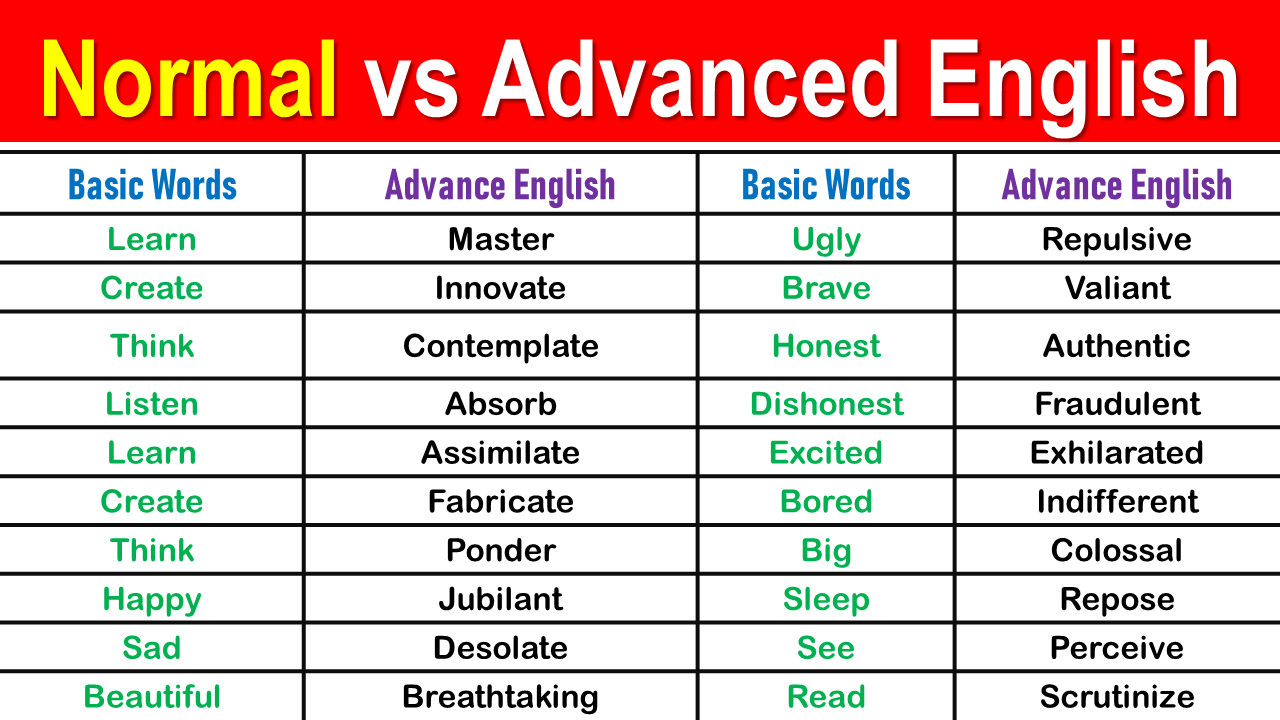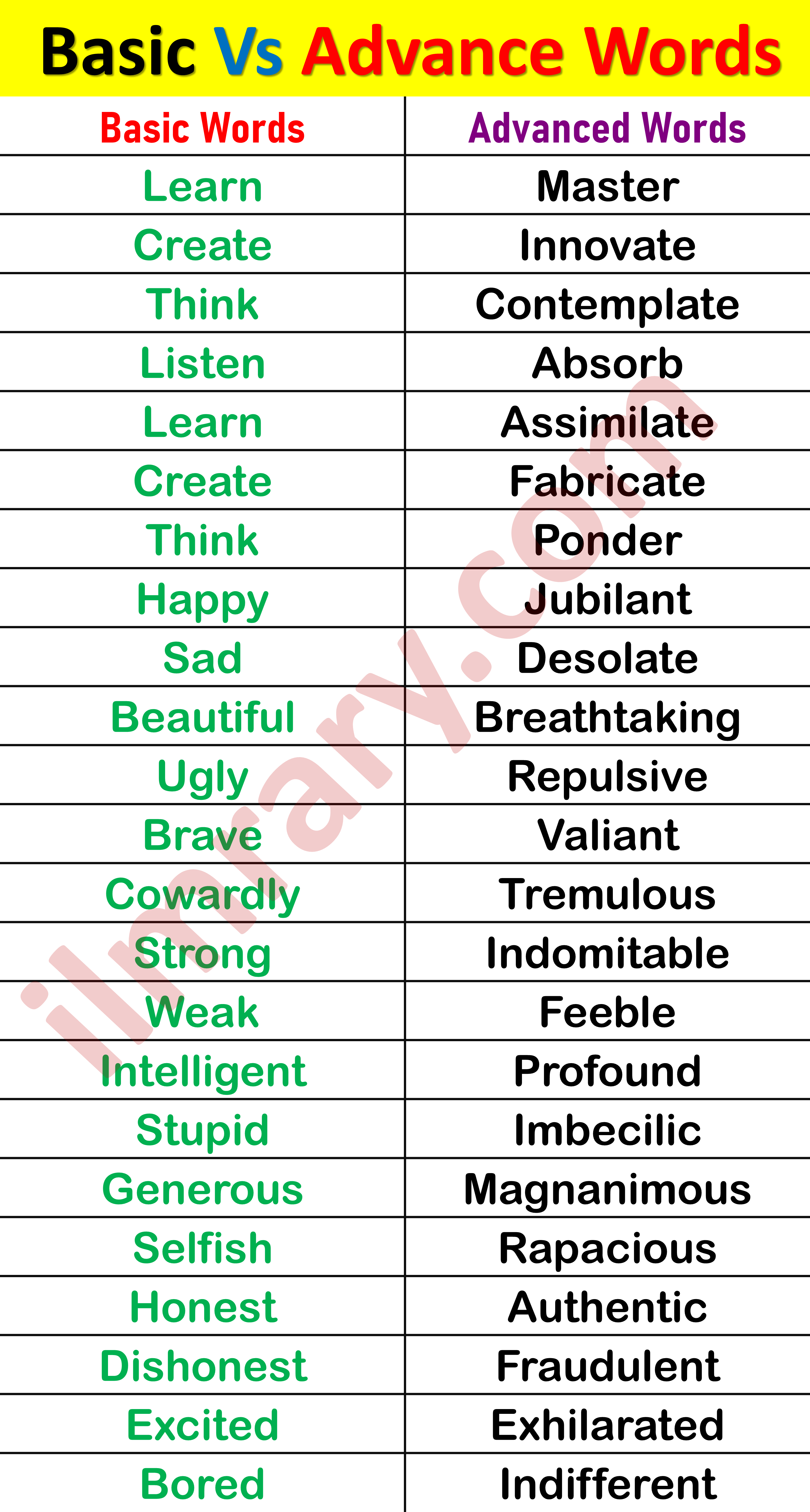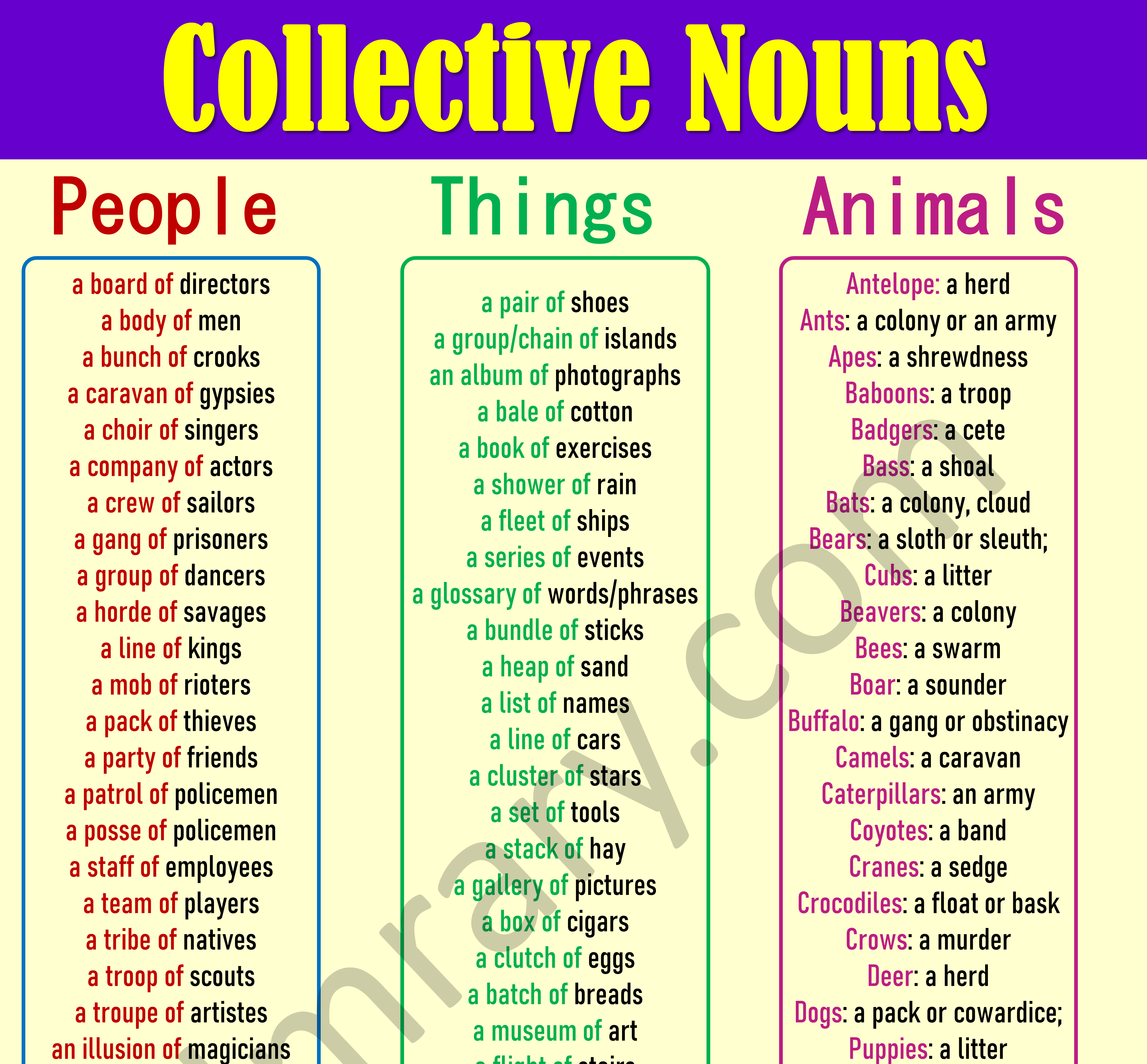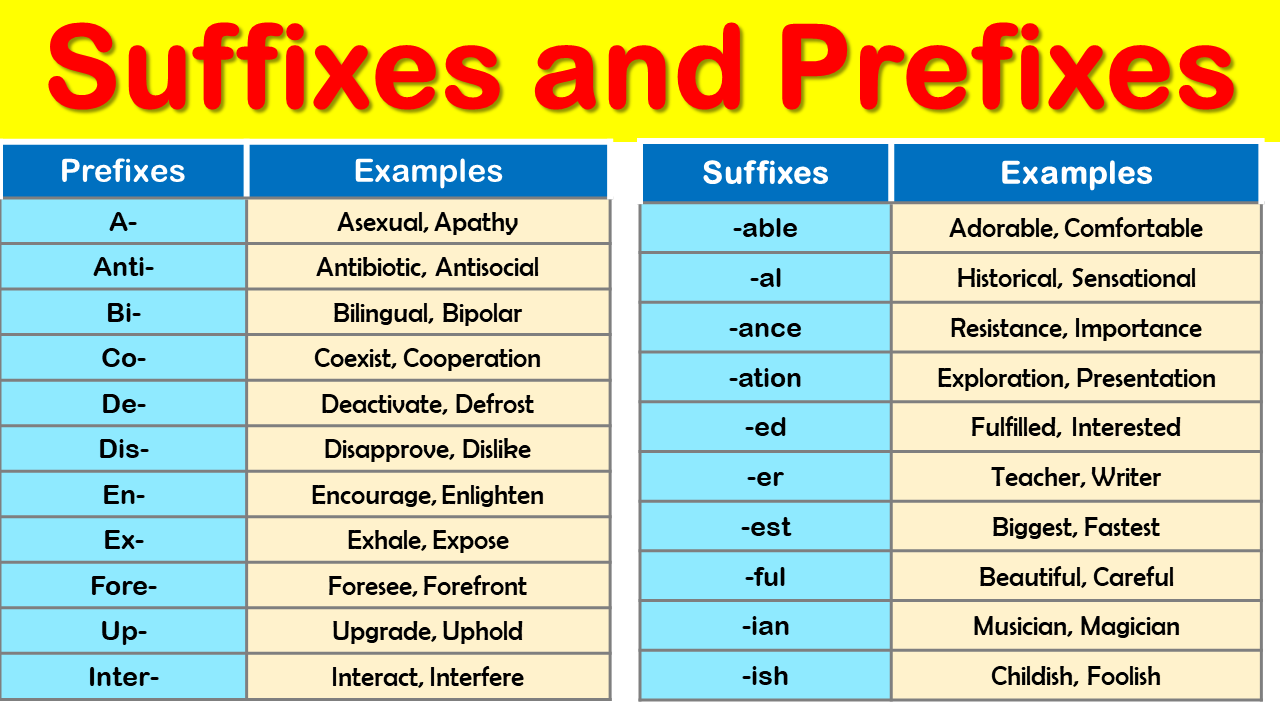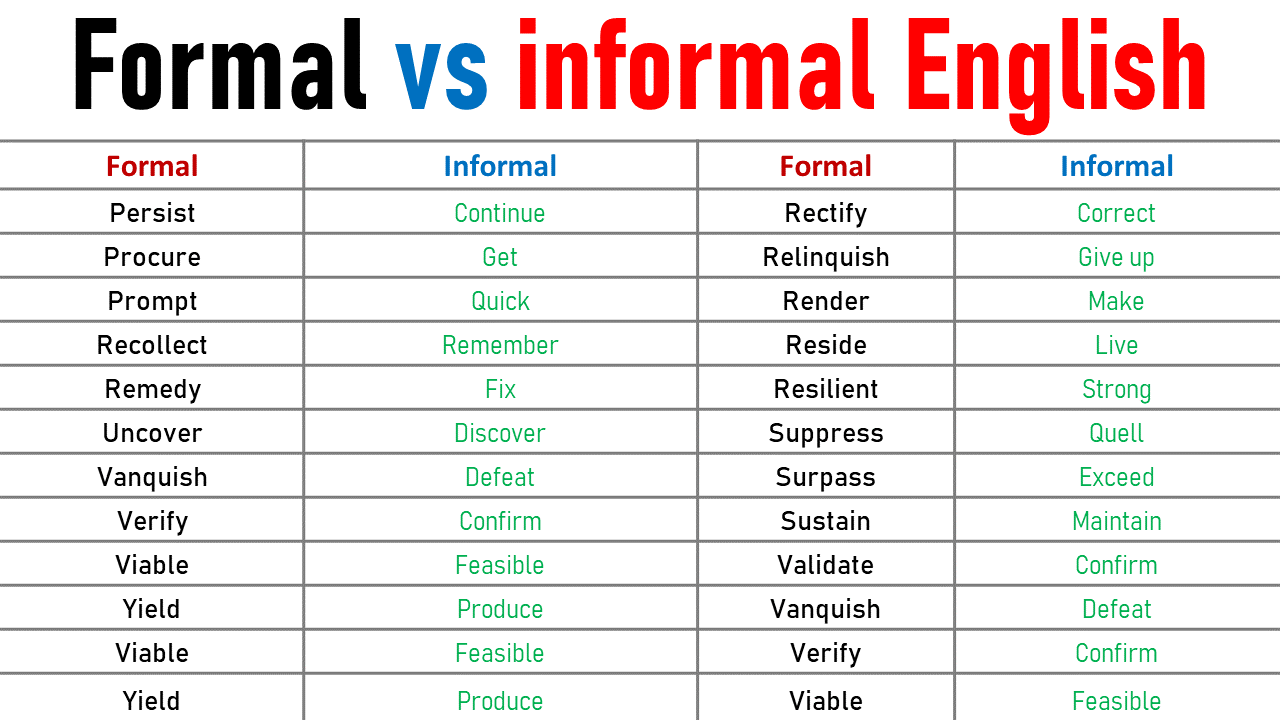Learning English vocabulary is an important part of becoming better at communicating. Whether you’re just starting out or have been learning for a while, knowing both simple and more complex words can help you speak and write more clearly. Vocabulary plays a key role in how well you can express yourself. Let’s learn how mastering basic to advanced words can improve your language skills.
Contents
Understanding Basic, Intermediate, and Advanced Words
Words are grouped into levels based on their difficulty. Let’s break these levels down:
1. Basic Words
These are the most common words that everyone learns first. They help us express simple ideas. For example, words like “happy,” “big,” and “run” are easy to understand and use.
2. Intermediate Words
These words are a little more complex than basic words. They allow you to express ideas more clearly and in more detail. Words like “delighted” (instead of happy) or “enormous” (instead of big) are examples.
3. Advanced Words
These words are used for complex ideas and often make communication more precise. Advanced words like “ecstatic” (instead of happy) or “colossal” (instead of big) can give your speech and writing a polished, sophisticated touch.
Norma Vs Advanced English words
| Basic Words | Intermediate Words | Advanced Words |
|---|---|---|
| Happy | Delighted | Ecstatic |
| Sad | Melancholy | Despondent |
| Big | Enormous | Colossal |
| Small | Petite | Minuscule |
| Good | Excellent | Superb |
| Bad | Terrible | Atrocious |
| Nice | Pleasant | Exquisite |
| Hot | Scorching | Sweltering |
| Cold | Chilly | Freezing |
| Fast | Rapid | Expeditious |
| Slow | Sluggish | Languid |
| Hard | Difficult | Arduous |
| Easy | Simple | Effortless |
| Love | Adore | Cherish |
| Hate | Loathe | Abhor |
| Talk | Converse | Dialogue |
| Walk | Stroll | Amble |
| Run | Sprint | Gallop |
| Eat | Consume | Devour |
| Sleep | Slumber | Repose |
| See | Observe | Perceive |
| Read | Peruse | Scrutinize |
| Write | Compose | Author |
| Listen | Hear | Attend |
| Learn | Acquire | Master |
| Create | Generate | Innovate |
| Think | Ponder | Contemplate |
| Happy | Delighted | Ecstatic |
| Sad | Melancholy | Despondent |
| Big | Large | Immense |
| Small | Minor | Infinitesimal |
| Good | Fine | Exceptional |
| Bad | Poor | Appalling |
| Nice | Pleasant | Captivating |
| Hot | Warm | Scorching |
| Cold | Cool | Frigid |
| Fast | Quick | Expedient |
| Slow | Sluggish | Lethargic |
| Hard | Difficult | Formidable |
| Easy | Simple | Effortless |
| Love | Adore | Cherish |
| Hate | Despise | Detest |
| Talk | Communicate | Articulate |
| Walk | Saunter | Trek |
| Run | Jog | Bolt |
| Eat | Consume | Ingest |
| Sleep | Slumber | Hibernate |
| See | Perceive | Discern |
| Read | Skim | Analyze |
| Write | Pen | Compose |
| Listen | Attend | Absorb |
| Learn | Grasp | Assimilate |
| Create | Invent | Fabricate |
| Think | Reflect | Ponder |
| Happy | Delighted | Jubilant |
| Sad | Melancholy | Desolate |
| Beautiful | Gorgeous | Breathtaking |
| Ugly | Hideous | Repulsive |
| Brave | Courageous | Valiant |
| Cowardly | Timid | Tremulous |
| Strong | Mighty | Indomitable |
| Weak | Frail | Feeble |
| Intelligent | Brilliant | Profound |
| Stupid | Ignorant | Imbecilic |
| Generous | Benevolent | Magnanimous |
| Selfish | Greedy | Rapacious |
| Honest | Sincere | Authentic |
| Dishonest | Deceitful | Fraudulent |
| Happy | Content | Blissful |
| Sad | Depressed | Desolate |
| Excited | Thrilled | Exhilarated |
| Bored | Uninterested | Indifferent |
Why Should We Learn Advanced Words?
As you improve your vocabulary, you can express your thoughts more clearly. At first, basic words are enough to communicate. But as you grow, knowing intermediate and advanced words helps you to:
- Be more precise: You can describe things with greater detail.
- Sound more sophisticated: Advanced words can make you sound more professional.
- Better understand texts: Books, articles, and other materials often use more complex vocabulary.
How to Learn and Use Advanced Words
Here are some tips to help you use advanced vocabulary:
- Read regularly:
The more you read, the more advanced words you’ll come across. Start with simple books and gradually move to more complex ones.
- Practice speaking:
Use new words in conversation. If you’re unsure, start with simple sentences and work up to more detailed ones.
- Write every day:
Practice writing short paragraphs using new words. This can help you remember and understand them better.
- Use a thesaurus:
A thesaurus is a tool that shows you synonyms (other words that mean the same). This can help you find more advanced alternatives to basic words.
Example Sentences
- Basic: “I feel happy today.”
- Intermediate: “I feel delighted today.”
- Advanced: “I feel ecstatic today.”
In the first sentence, “happy” is simple and clear. In the second, “delighted” adds a little more detail. The third sentence uses “ecstatic,” which expresses an even stronger emotion, helping the speaker convey their feelings more precisely.
How Does Learning Vocabulary Help Us Grow?
Learning new words isn’t just about knowing more terms; it’s also about growing intellectually. Here’s how improving your vocabulary can help:
- Cognitive growth:
Understanding new words helps improve your thinking skills. You start to think more deeply and clearly.
- Better communication:
The more words you know, the better you can express your thoughts and ideas. You can explain complex concepts more clearly.
- Improved academic performance:
In school or college, using a wider range of vocabulary can help you write stronger essays and participate in discussions more effectively.
Common Mistakes to Avoid
While learning new words, you might make some mistakes. Here are a few:
✅ Correct: “The story was incredible.”
❌ Incorrect: “The story was good.” (Using a basic word when an advanced one is more fitting.)
✅ Correct: “The food was delicious.”
❌ Incorrect: “The food was tasty.” (Sometimes, “delicious” sounds better in more formal situations.)
FAQs
1. How can I start learning advanced vocabulary?
To start, read books, articles, and stories that challenge you. Look up words you don’t know and try to use them in sentences. Practice regularly by speaking and writing.
2. What is the difference between basic and advanced vocabulary?
Basic vocabulary includes simple words like “good” and “big,” while advanced vocabulary uses more specific words like “superb” and “colossal” to give deeper meaning.
3. Should I focus on advanced vocabulary right away?
No, start with basic words and gradually learn more complex ones. Build your vocabulary step by step for better understanding.
4. How can I remember new words?
You can make flashcards, use new words in sentences, and try to use them in conversations. The more you practice, the better you’ll remember them.
5. Why is vocabulary important in English?
Having a wide vocabulary helps you communicate better, whether you’re speaking or writing. It also improves your understanding of different topics and makes learning easier.
You May Also Like


